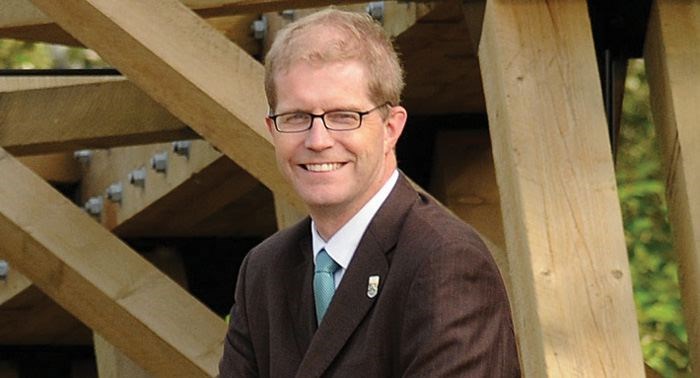Prince George should add its name to the list of those calling for a federal housing strategy, according to a local councillor.
Garth Frizzell, who sits on the Federation of Canadian Municipalities board of directors, is bringing the organization's housing crunch resolution to the local city council chambers.
His submitted notice of motion asks for council to endorse the FCM campaign and urge the federal Employment and Social Development Minister "to develop a long-term plan for housing that puts core investments on solid ground, increases predictability, and protects Canadians from the planned $1.7 billion in social housing agreements and ensures a healthy stock of affordable rental housing for Canadians."
Nearly 200 communities across the country have already passed similar resolutions, all with the goal of asking to be included in the conversation about what a housing strategy would look like.
"There hasn't been comprehensive consultation like we had with infrastructure," said Frizzell. "Those were all across Canada, they were effective, they got the voice out for municipalities that were large and urban and municipalities that were small and rural. Canada is big and we have a series of different needs."
According to FCM, rental construction has accounted for 10 per cent of new residential construction over the past 15 years and that for more than a decade, the national vacancy rate has remained below three per cent - the rate that is considered balanced. One-third of Canadians rent, with more young people living with their parents in 2011 than in the 1980s.
The vacancy rate in Prince George sits at two per cent, said Frizzell.
As of the end of April federal housing subsidies will begin to expire, said Frizzell, with funding dying out over the next two decades.
"That sounds not too urgent or gripping but let's take Prince George [for example]. Right now in Prince George we've got a two per cent vacancy rate. And we've got a promise of lots of different people coming in for natural resource extraction," Frizzell said. "So if we're trying to attract workers as much as possible, but we don't have places to put them, what will that do?"
The end result would be that currently attractive prices for single-family homes will rise, putting more pressure on accommodations in the lower end of the market, he said.
"It seems ludicrous to be talking to someone, encouraging them to come to Prince George, to work in Prince George, enjoy all the amazing things we have here, but when they say 'but where am I going to live' to not have an answer to that," Frizzell said.
Affordable housing isn't something that municipalities can handle on their own, Frizzell said, but it could become placed on local government shoulders if the federal and provincial levels don't step up.
"Right now we respond and we have very good systems for responding when developers come to us. But we're not the ones who initiate - we're reactive, not proactive," he said. "We may contribute if there's a good proposal, we have the capacity to contribute things like land, but that's not the goal of this [resolution]."
Frizzell pointed to Monday night's vote to repeal a business licence fee for residential rentals as one way the city can help to remove barriers to affordable housing.
"As a tool, it was intended to make neighbourhoods safer, officially," Frizzell said. "But I talked to front-line workers, people who help homeless people, and they said 'no, it's not a tool that would be used by our clients. They're already having enough challenges finding a place to live.'"
Frizzell's motion will be discussed at the next council meeting on April 28.



